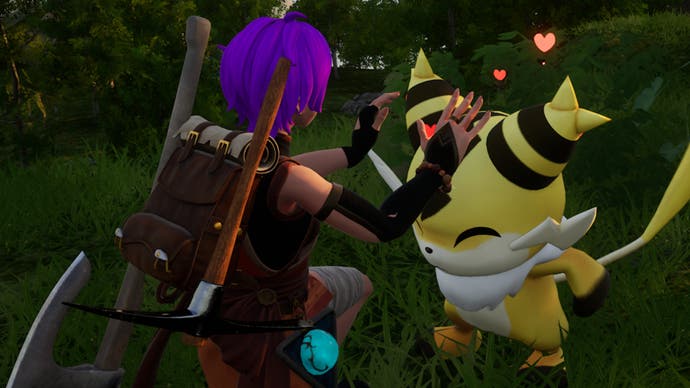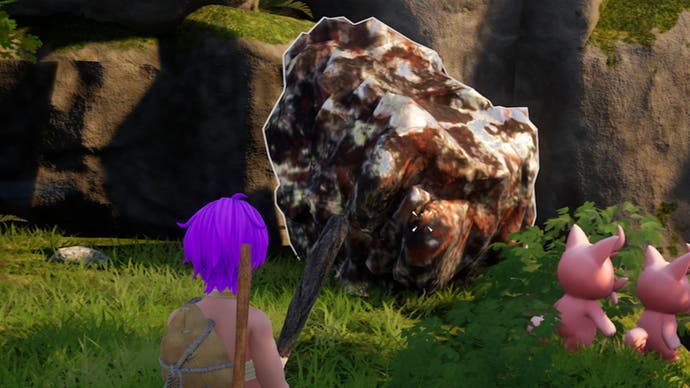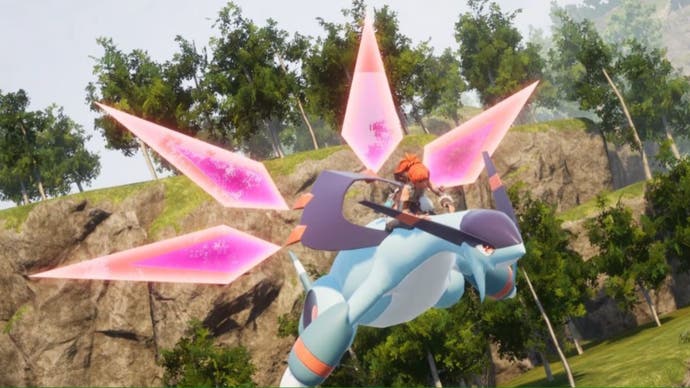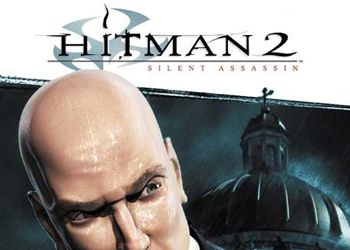TRANSPORT Giant: Game Walkthrough and Guide
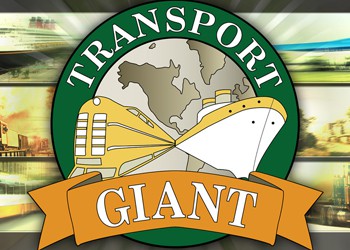
– what is it?
I am a fabulous king or not?
And since I’m fabulous – so to the hell! Stroller – Forward!
And stroller, obeying the fabulous king, breaks away from the place, raising the fool, and now rushes along the royal road.
Evgeny Schwartz, “Cinderella”
So, the box with the game on the table in front of you. Or you opened the magazine at random. This means nothing. In any case, we will talk about “Transport Giant”, in Orthodox baptism – “Transport Oligarch”.
By the way, remember that in Russia it makes it only “Akella”. Other semi-easier firms lgut when spoken up to some licenses there.
Dandy with sack potatoes– …For the shelter stood by the Juffin himself: he could not afford to pay a hired worker…
Maxim Fry, “Cattle Dead”
First – a brief excursion to economic disciplines. I approximately imagine what expression after reading this proposal took your face, so we turn a boring lecture in an interesting story. The powerful corporations did not pass, not knowing Azov, not? In general, let’s see how the transportation of passengers and goods changed on the epochs.
At the dawn, only by resetting the Crunelon and Neanderthal and Neanderthal, humanity did not imagine how professional transport looks like. Fishermen in straw shacks, surprised salmon in the nearest river, and peasants who souse and pussy bread, lived apart and did not hardly know each other. Goods were produced without leaving a pashnya or Saraike with gear. As soon as someone from the clocks needed flour, he was heading towards neighbors. Did not differ in diversity and behavior of pagars.
But here settlements, after heavy rains and fish shoals, rose in size. There was one seamless person who easily invented his own occupation on the distinguished mind. He appeared to the peasants and took them ten loaf of bread. Then he declared to fishermen and exchanged nine flour products for ten salmon. All, except for one, the fish he returned pahars. The merchant worked all day and mined food just like the rest of the inhabitants. Satisfied with everything – and he, and his clients who got rid of daily troubles. So the transport industry first stepped down, leaving the playpen.
Since then, a lot of winters have passed since. That angry guy died, his son was stubborn in the ground. In front of the grandson, an offacarious merchant, unpredictable difficulties. He no longer coped alone – to carry grain with bags and salmon baskets. Not dozens hope for him, but hundreds. But creative talent did not disappear, rather multiplied. The merchant stands on the threshold of the neighbors and promises them bad copper coins so that “poor relatives” helped him in his craft. So, now she is trying not a private entrepreneur, but any, but the company.
Many dawns back and fish, and bread got away by the source without a residue. But already his grandson dug up the cellar, so as not to stay hungry in the lack of town years – the pit is full of food. And food is, saying a state language, “excess product”, this power over others. The merchant is a triumphant look at numerous houses in the village. And suddenly notes that an old man sits in the corner and draws something in the sand in the sand. The descendant of a snack peasant lights up curiousness and finds out that this man invented a tricky device – a wheelbarrow to carry goods. The merchant promises him content and requires him to open a secret. The old man agrees, at the same time turning into the first pensioner and the designer in the world and in one person, and the company hires a scientist, also a serious innovation.
The epochs and centuries were replaced. Empire fell and resurrected from ash. Dynasty broke and ruined merchants. Cars changed on the carts, then horses harnessed in them. Delighted the sail on the stick and adapted to transport the sea. Revealed the power of the para. Instead of the wagon of the horses, the cars pulled. Then they were replaced with locomotives. Ships learned to swim against wind and flow. In the company, brought accounting, and then double. Spread tentacles huge corporations. The economy stepped forward on many buildings. Steel birds rose in the sky…
You will pass this path from the very beginning. Let not with the Sumerians, Egyptians and Dodon, but pass. How? Run the game.
Manuff trainers and manufacturers
When you open the game card, you will notice numerous buildings on it. Some of them are cities that understand the appropriate chapter. Others are your own warehouses and stations, you will read about them in the chapter “Align the hills of the shovel”. Third – this is vegetation: fishing rivers, mountains, rivers. Determine them as “buildings” is a bit strange, but remember that, on the mechanics of the game, they do not differ from the same manufactory. The latter is just local industrial power.
Strictly speaking, they not only cast steel and pack the ice cream chicken. Approximately half – these are agricultural land, which consume only fertilizers, but with enviable regularity lay out on the shelves of cotton, tobacco, grain and other “villages”. Despite this, the general rules of the economy are effective for them – if you or your competitors carefully ignore some entrepreneur (suppose you do not like his baldness), then he will warm.
This is interesting: In fact, plantations are distinguished only by the fact that one in the needs.
In general, the rules are. A couple of goods are attached to each structure – consumed and issued. In the pop-up tip, it is clear how much one thing is required by one annually and how much he gives out another. Complete industrial systems are the marchs of American spies, and we, Germans, never take their goats for a clean coin…
This is interesting: Complement comes soon to “Transport Giant”. The list of changes is quite impressive, so it will be inconvenient soon to mock.
I would like to explain the concept of “production chain” in advance. The production chain is a series of enterprises in which the following consumes the products of the previous one, with the first link, presumably, both agricultural and industrial. Note that the system was planned closed, t.E. There is no one who is not necessary products and nothing arises from the air. But…
It is important: It does not interfere with individual factors to process trash. To the air. And who gives them money?
Unfortunately, should warn you from the next min, jojood employees. The one who is equipped with a full-fledged paperbook-book from the box will undoubtedly not be undermined, but such cards, according to my calculations, except for one of the thousand.
So, we open it in about the middle and read among the list of chains in pictures that they are part of, unfortunately, did not have time to refine, and the situation will change in the nearest corrections. In proof instead of enterprises between the arrodes there are question marks. I rightly note that the guys deserved sweet candy, but my views are hardly divided…
This is interesting: We are staring with empty glasses not only question marks. Something “and the trees replaced the sign with the inscription” Tree “.
Imagine your trucks arrive at the railway mine, are loaded completely. Next route – to the stationary plant. The factory calmly integrates the cargo, you acquire what happened in the end… What’s next? No one except to be, you are not required. In cities from her, too, are diverted – why the man’s plane? I agree, you are entitled to leave it in local warehouses, but in this case, entrepreneurs will soon ruin and cling.
Copper – Iron Mirror Display. From the bowels dug, remembered, taken away – and the chain sags in the air. By the way, the final missing links are painted in blue – this means that the goods are consumed by cities. Thank God, that from the needs of the population, they are badly eliminated, otherwise…
Sausage Manager Manager
Cities – this is a pretty interesting part of the game. I note that the megapolis of the 19th century is not a megalopolis of the 20th century. Change buildings, completely different styles and sizes. But despite the fact that you notice a lot of diverse buildings, skyscrapers, sleeping areas, you really have one huge factory in front of you, only and everything.
You see, the scale is a bit not like that to allow drafts to approach citizens, together with pizza and smile. We play in Germany, in France, in certain US states. The user would literally power in routine clicks of the mouse buttons.
Therefore, cities are turned into a solid object, along with factories and agricultural land. When you look close to the pop-up tip, then note that the numbers in it do not change, how much will be called the Avenue or streets. What we do?
Anyone consumes food and strives to eat three times a day. We are not on the village, but therefore are mandatory powerful companies that they will drive tanks with milk and wagons with meat on warehouses. In the role of these corporations you and your rivals. Moreover, production chains are closed on the city, t.E. Ultimately, the sake of megalopolises tear wood and dig coal.
But, by analogy with the factories, the city is obliged not only to take, but also to issue something – and he performs obligations. Only a few peculiar. In the end, you are forced to export tons of garbage on landfills and processing factories. You, of course, pay for it. By the way, it is the latter that the system closes – only consumes, but nothing is produced.
Moreover, very many in those turbulent centuries, on the idea of developers, the idea of universal migration. The otherwise explain what out of 7 thousand. prescribed 2-3 thousand. Monthly go to other concrete boxes? Actually, transporting these nonsense is very profitable, at least more profitable than working with many industrial sectors.
Last than you earn a labor penny – to carry mail from one megapolis in another. Very strange, but letters go to a month less than citizens leave. It seems to speak personally – fashionable. Not so profitable, not so fast, but also very and very good.
But believe that it is worth only to connect two points and calmly smoke dollars – very badly mistaken. I agree, who wishes to move always, but only – in nearly all cities. Keyword – almost. The arteries are chant, crises happen, and after passengers the wind walks in his pockets. In addition, sometimes the oasis of civilization are separated from each other with 10 kilometers of jungle and rivers. So what to enriched differently – no worse.
It is equally difficult to trade and food – plantation and farms far, grow a cranberry, not fertilizing the soil, refuse, then competitors and t.P. But when you, overcoming adversity and defeating competitors, cultivate the city itself – you are entitled to be proud of yourself.
But, oddly enough, completely isolated megacities do not disappear from the card, and the prescribed people are not leaving sin to prosperous places. So the villain of inclinations to satisfy refuse.
Brotherhood of steel and hoofsThat’s it – cars. Cotelet size. Ten Kochnarkov Coal Tack. Steam roar, wheels are spinning. Bronze rods walk, shine lubricant. And a glider, although not a superstitious I, rather on the witchcraft…
FROM. Lukyanenko, “Cold Coast”
Past of industrial buildings and cities are moving not only wild deer, hares and other representatives of fauna, but also specially sent vehicles. They look differently – from a horse with a cart to soaring helicopters and aircraft in the sky. But the differences are not only and not so much in stylish images, but in characteristics and speed.
Total in the game Seven types of cargo transporters, specifically: trains, monorail transport, ships, airplanes, helicopters, electric trains, cars. Initially, there are no air vehicles, nor anything that uses gasoline or electricity. The lists are disclosed gradually, with outdated models disappear and replaced with modern – so, in 2035, no one will give you to release horses to the streets of megacities. Similarly, cars at the dawn of the 19th century stretch along the rails are not locomotive, but quite horses.
It contains your breadwinners not somewhere on the map, but in the ephemeral space, submitted only by the list – names with numbers. Buy and sell them using the second button from above on the general screen. Interface Elementary – Arrow to the right means “purchase”, arrow to the left – “exchange for solid currency”. But choose something from the long list – the task is not easy. In the choice you will be helped by characteristics in the center.
First, pay close attention to the series of icons below and numbers under them. It is, so to speak, the foundation – any vehicle was designed to perform certain tasks, and the passengers are very hopeful when they, with smiles and drafts, will be offered to ride in a cargo car, right on boxes with cement or, which good, radioactive waste.
At the same time, soft chairs and tables with flowers are not so useful when a pig with piglets fell instead of a sedalent in it, and the vegetation fell asleep with tons of two coal. Something more efficiently transports one product, and the rest look in cargo compartments as the fifth leg. Of course, choose from two hundred options – it is difficult, but not all of them are loaded at all, and the rest cut off the epoch.
Secondly, look at the strips on the left. Nobody will present you a detailed report on the forty pages with tables and charts so that you are in comfort to solve, what to use to be moved from B to C, but still some convenience. All lists, as you observe, 6 pieces, characteristics 13, of which are numerical – 9. One vehicle is the fastest, other transporting colossal cargo, and so on. Of them are compiled, according to the principle of “Luba Peter Ivanovich to God Ivan Petrovich”, the perfect freight with maximum parameters. And then with him compare the rest of the models. Result before your eyes.
Third, briefly explain the meaning of the only incomprehensible characteristics. Speed differs from the maximum speed about the same as election promises with the subsequent actions of the government – ideally, of course, so, yes, 100 km / h, but the details worn, the road is bad, and in general we are overloaded, and therefore sorry, sorry,But not 100, and 18… The ideal is achieved only when you drive transport almost not too much, and he has just been delivered from the factory. Otherwise – alas.
123
